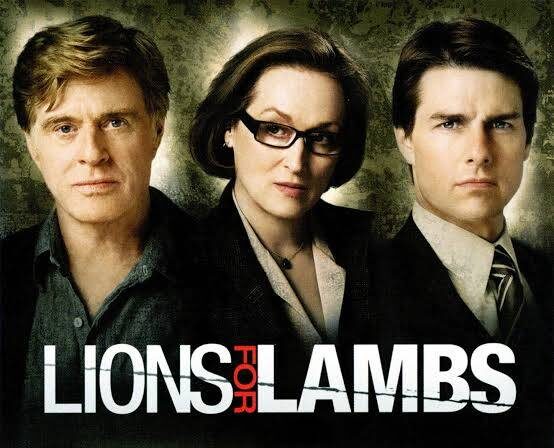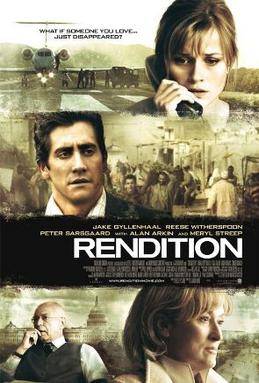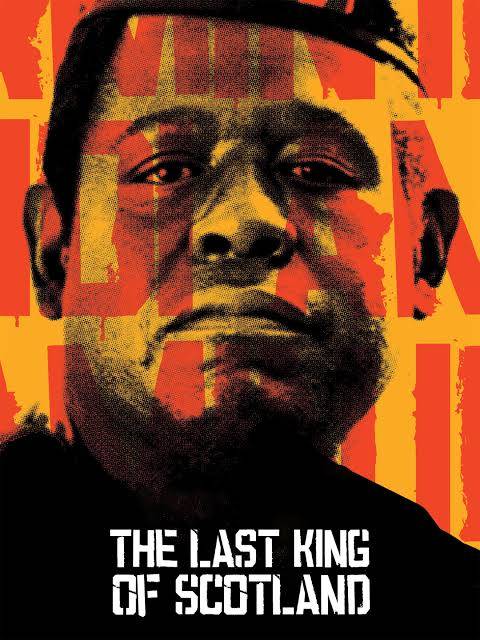Power, cowardice, and the choices we pretend not to make

But what does choosing a leader mean beyond the epal slogans and long lines at polling precincts? Let’s step off the campaign trail and into three politically charged films that hit harder this year than they did on release.

“Rendition” (2007)
TL;DR: Torture, truth, and the tightrope walk of conscience
Don’t let the bland title fool you. “Rendition” is not about ballet or abstract painting; it’s a euphemism for outsourced torture in exchange for information. Since 9/11, “extraordinary rendition” has let U.S. intelligence snatch suspects without due process, using any means necessary to get information.
Jake Gyllenhaal plays Douglas Freeman (note the irony), a rookie CIA analyst whose job is to sit and watch a suspected terrorist be interrogated (CIA-speak for “torture”) in a shadowy facility off the U.S. grid. It’s all very black ops and morally gray.
Reese Witherspoon plays Isabella Fields El-Ibrahimi, an American searching for her mysteriously vanished husband, Anwar (Omar Metwally), an Egyptian-born, green card-carrying scientist whose name triggered the wrong algorithm. The ice-cold head of intelligence, Corrine Whitman (Meryl Streep), orchestrates the entire operation like she’s running a bake sale.
The film raises tough questions: What are we allowing our leaders to do in the name of safety? “Rendition” hit Philippine theaters not long after the Glorietta explosion, and let’s just say the plaza bomb scene felt less like fiction and more like a memory.
What makes “Rendition” more than just a thriller is its unsettling relevance (Tokhang? Martial Law?): how quickly we normalize overreach, how easily we rationalize inhumanity, and how staying silent at a “harmless” sexist joke makes you complicit.
The uncomfortable truth? The “greater good” is often used to cover for personal cowardice. Rating: 8/10
“Lions for Lambs” (2007)
TL;DR: One war. Three stories. No excuses
“What do you stand for?” asks the trailer. But “Lions for Lambs” takes it further: What are you doing about it?
Told in three parallel threads, this film is essentially a TED Talk wrapped in a war drama, dressed in Hollywood glam. Sen. Jasper Irving (Tom Cruise) is trying to sell a new plan of action for the war on terror to Janine Roth (Meryl Streep), a veteran reporter given the exclusive scoop. Director Robert Redford also plays college professor Stephen Malley, who is mentoring a potentially gifted but apathetic student, Todd Hayes (Andrew Garfield). Ernest Rodriguez (Michael Peña, who has a similar role in “World Trade Center”) and Arian Finch (Derek Luke) are Prof. Malley’s former students who make an extreme decision in Afghanistan, where Irving’s war strategy has been rolled out, linking everyone together.
This film presents complex characters and fairly balanced sides. Even the often-mocked politician’s dilemma is treated with respect; leaders are shown in painful positions to make decisions that will not always be popular.
Yes, it’s preachy. No, it doesn’t apologize. If “Rendition” is about passive complicity, “Lions for Lambs” is about active choice (or the lack thereof). It dismantles the comfy excuse of helplessness and drills in the idea that every choice (or failure to choose) cascades down the line.
An impressive exercise in discipline, the film gets to the point in only 88 minutes, when it could’ve easily dragged into a three-hour sermon. It’s dialogue-heavy, but you’ll hang on every word. What’s unique is that each character acknowledges the errors of their “side.”
“Lions for Lambs” is your cinematic slap in the face to wake up, vote consciously, and stop assuming democracy will work itself out while you binge the latest Netflix docuseries. Rating: 9/10

“The Last King of Scotland” (2006)
TL;DR: Dictatorship with a side of denial
Based on the novel by Giles Foden, “The Last King of Scotland” is inspired by true events from the brutal regime of Ugandan dictator Idi Amin (Forest Whitaker) as told from the wide-eyed, reckless perspective of a fictitious young Scottish doctor, Dr. Nicholas Garrigan (James McAvoy), who becomes Amin’s physician in the early ’70s.
Whitaker as Amin is a force of nature. If you think your local politicians are dramatic, wait until you see the man smile through genocide. To Dr. Garrigan, he’s part rockstar, part monster. While McAvoy can hold his own, acting-wise, against the Oscar-deserving Whitaker, he seems too young to be fully convincing as a doctor sent to help the African poor.
“The Last King of Scotland” is about being seduced by power and how ignorance isn’t always innocent. Dr. Garrigan’s thirst for adventure is understandable. But as a narrator, he’s hard to root for; the average person wouldn’t make the choices he does.
It’s easy to dismiss Dr. Garrigan as naive, but he reflects something uncomfortable: how people, especially privileged outsiders, convince themselves they’re doing good even when standing knee-deep in horror. His turning point comes when another doctor tells him, “Go home and tell the truth about Amin. They will believe you. You are a white man.”
Subtle? No. Necessary? Absolutely. The editing is crisp, and the pacing is exciting as the story unravels. Filipinos will have deja vu feels from that era. Watch this and be awakened by the brutality of blood spilled and, more horrifyingly, of quiet decisions we and our leaders make every day.
With the Philippines’ history of strongman rule, “The Last King of Scotland” hits home. It’s a chilling reminder that tyranny often walks in with charm, not chains, and it thrives when ordinary people look the other way. Rating: 9/10
These films confront us with the truth: that the personal is political. Every unchecked box on a ballot, every red flag we shrug at, every “that’s just how it is” moment—that’s how democracies erode.
This May 12, don’t just vote. Wake up. Reflect. Choose like it matters. These films aren’t just entertainment; they’re warning signs. And sometimes, what they show us isn’t just ugly. It’s familiar.

















